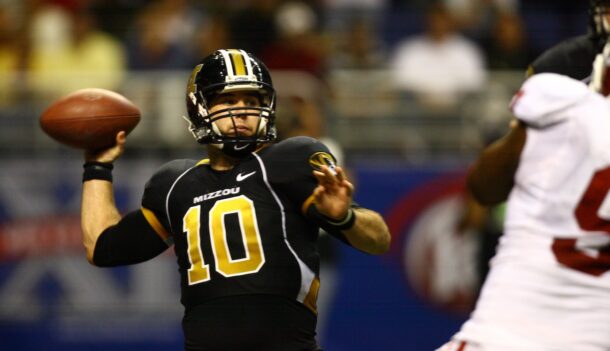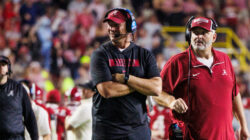Do you ever wonder what it must like to have played in the SEC and NFL, able to go nowhere without being recognized?
What if that recognition came in prison?
That’s the story of former Tennessee tailback Jamal Lewis. Lewis, who played for the Volunteers from 1997-99 – their glory years – had his NFL career interrupted by his arrest for using a cell phone to facilitate a drug deal years earlier. He spent four months in a federal penitentiary in Pensacola, Fla. where a young Trent Richardson met him.
Robert Klemko of The Monday Morning Quarterback reported last year that Richardson would visit Lewis in prison, who would give him advice on how to take care of his body and make it to the NFL.
If only Lewis could’ve followed his own advice.
He had to retire in 2009 after three seasons with the Cleveland Browns due to concussion-related symptoms. Lewis told Klemko that he would mock runners who dipped out of bounds at the end of runs instead of initiating contact. He says now, though, “they were the smart ones.”
Lewis had a standout career, however. He’s third on the all-time rushing list at Tennessee and fourth in all-purpose yards.
He was selected fifth overall by the Baltimore Ravens in the 2000 NFL Draft, and went on to win a Super Bowl as a rookie with Baltimore. Lewis had a career year in 2003, leading the league with 2,066 rushing yards, still a Ravens franchise record. He still holds Baltimore records for career rushes, yards, rushing touchdowns in a season and career rushing touchdowns. Lewis finished his career 22nd in NFL history in career rushing yards.
But those accolades come with a price.
The former running back estimates he averaged 15 full-speed, helmet-t0-helmet collisions per game, 16 games per year for a decade in the NFL.
Let that sink in for a moment.
Concussions? A lot of them probably were, but went undiagnosed. They were never called that, either.
“You got your bell rung,” Lewis told Cleveland.com. “You got dinged. You don’t know that, 15 years from now, this hit or this situation can actually hurt you for a lifetime. Somebody’s always fighting for your spot. So it’s like ‘Suck it up. Get me back out there. Put me in, coach.'”
They put him back in. And it was the beginning of the end of Lewis’ career.
It was also what led to Lewis joining a lawsuit against the league by former players for withholding information related to concussions that garnered a record $765 million settlement.
The headaches keep coming. Sometimes he forgets where he is.
“I’m 32,” he says. “Thank God I’m 32, but it’s like, where is this thing going? You wonder what you’ve already done.”
After living in Birmingham, Ala., Jordan left the ground zero of SEC Nation to head south to Florida to tell the unique stories of the renowned tradition of SEC football. In his free time, his mission is to find the best locales around.







